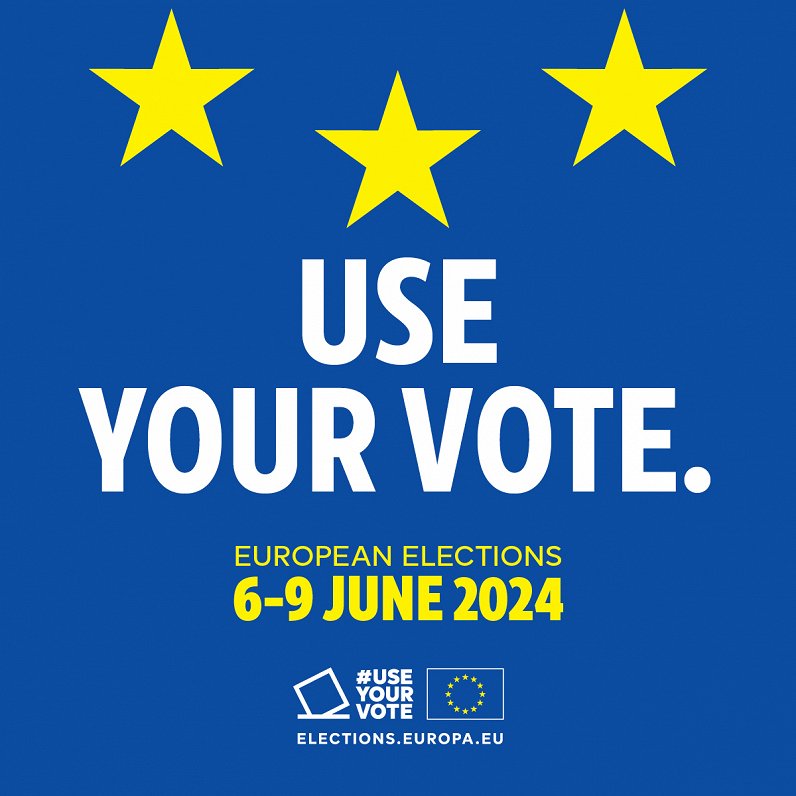Those people include many citizens of other European Union member states who also have the right to participate in the elections. However, EU citizens should be aware of certain rules governing their participation in the election.
All the information below comes from the Central Election Commission (CVK) which is in charge of administering all public elections in Latvia, and from the official European Parliament election portal.
Latvia is treated as a single constituency in these elections. Nine members of the European parliament will be elected to the European Parliament from Latvia, an increase on the eight MEPs elected the last time around in 2019. You can explore the current contingent at the European Parliament website.
Citizens of Latvia and citizens of other European Union member states residing in Latvia and entered into the Register of Voters have the right to elect the European Parliament. To participate in elections a voter on Election Day must be at least 18 years old.
Latvian citizens are automatically included in the Electoral Register. Citizens of other EU member states who want to use their electoral right in Latvia can do so, but must register with the Central Election Commission in person, by post, or electronically (if using the eParaksts/eSignature app) at least 30 days before Election Day (i.e. May 9).
In their submission they must state their desire to vote in the Republic of Latvia and include a commitment not to exercise their voting rights in another member state of the European Union. Everyone can vote once and once only.
In the submission, the person must state the following information:
1) name, surname;
2) personal code assigned in the register of natural persons (if any);
3) citizenship(s);
4) information about the identity document (type, number and series of the document, date of issue, validity period, issuing country and issuing authority);
5) place of residence in the Republic of Latvia;
6) electoral district in another member state of the European Union, where the person has been registered in the voter list until now, if there has been such a registration;
7) commitment to use your voting rights only in the Republic of Latvia.
The Central Election Commission examines a person's application regarding the desire to vote in the Republic of Latvia and informs the person of the decision made. If a person is denied participation in voting, the decision of the Central Election Commission can be challenged in court in accordance with the procedures specified in the Law on Administrative Procedure .
The Central Election Commission has the right to check in the country of the person's nationality whether the right of the relevant person to vote for the European Parliament is not restricted.
Where can you vote?
You may vote at any polling station within the country. Polling stations will be open on the day of the elections from 08:00 until 20:00, but also a few days before. Early voting at polling stations in Latvia will take place on 3, 6 and 7 June.
You will need to take ID with you to the polling station – a passport or electronic ID card.
For whom can you vote?
Obviously, this is a question for you to decide for yourself. But to provide some background, over the next few days we'll be publishing a round-up of all the parties that have registered to participate in the European Parliament elections in Latvia.
However, one thing you should be aware of before you enter the voting booth is Latvia's somewhat unusual method of voting. Upon arrival at the polling station you will be handed a thick sheaf of ballot papers for ALL the parties standing in the elections, and a single voting envelope. Once you are in the voting booth, you need to select ONLY the ballot paper for the party for which you want to vote. All other ballot papers are discarded (yes, this generates a lot of waste paper).
But that's not all. Now you have the option to select those candidates on the party list that you particularly like by placing a cross in the box next to their name (not a tick or a forward slash or other symbol, it has to be a cross – see the example in the tweet below). If there are names on the list you particularly don't like, you can neatly cross them out. Or you can leave the ballot paper completely untouched – it still counts as a single vote for the party once you have put it in your voting envelope and deposited it in the ballot box.
All this business with crosses and crossings-out can have an effect on which of the party's politicians get elected as they effectively rise and fall on the candidate list, but no matter how many names you subject to this treatment, you are still casting just ONE vote for ONE party.
Līdz Eiropas Parlamenta vēlēšanām 100 dienas #EiropasVēlēšanas2024 pic.twitter.com/jOmAJTeF2m
— CVK_zinas (@CVK_zinas)
February 29, 2024
Further information
There are several helpful websites giving more information about the European parliamentary elections:





























